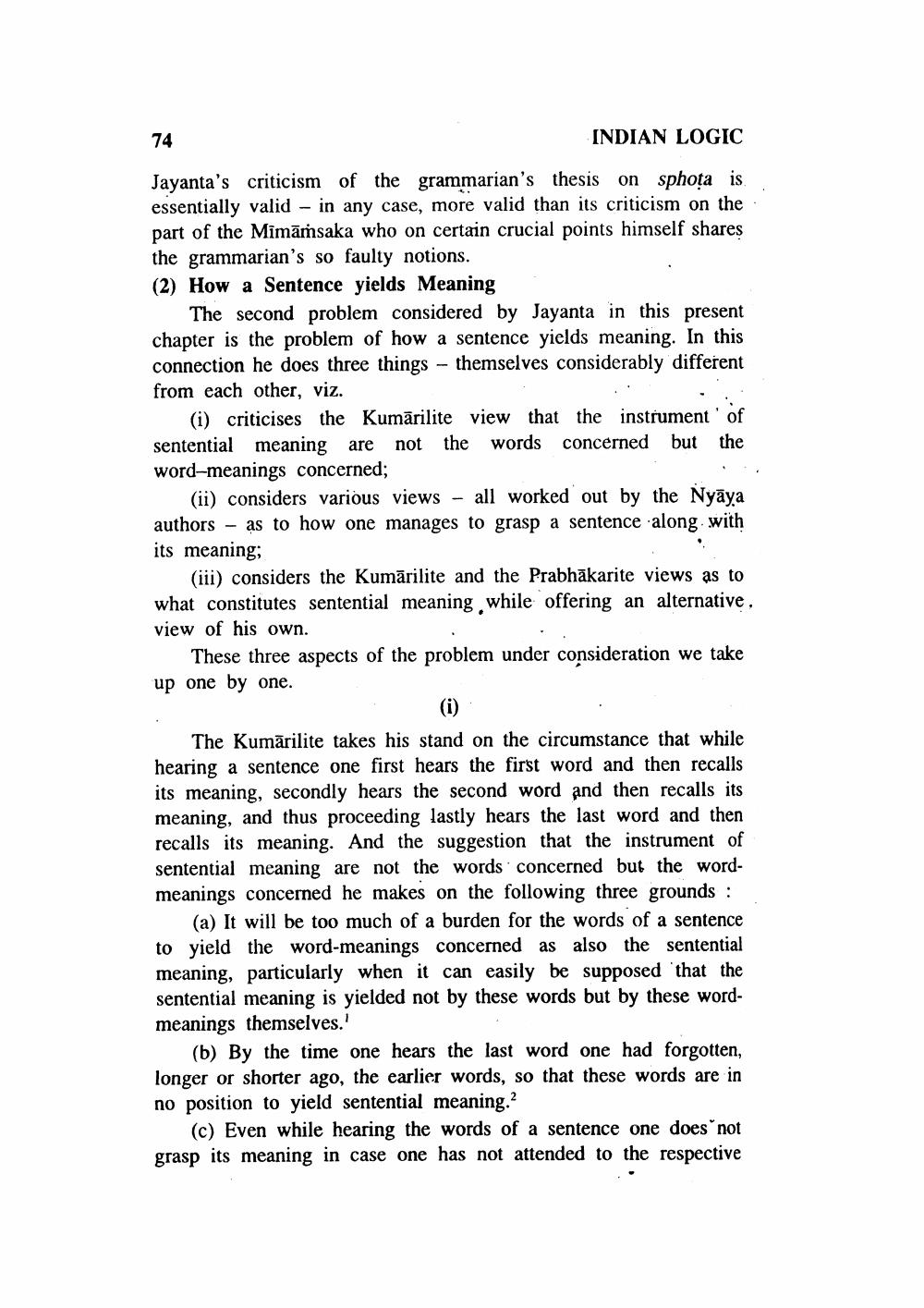________________
74
INDIAN LOGIC
Jayanta's criticism of the grammarian's thesis on sphota is essentially valid - in any case, more valid than its criticism on the part of the Mimāṁsaka who on certain crucial points himself shares the grammarian's so faulty notions. (2) How a Sentence yields Meaning
The second problem considered by Jayanta in this present chapter is the problem of how a sentence yields meaning. In this connection he does three things - themselves considerably different from each other, viz.
(i) criticises the Kumārilite view that the instrument of sentential meaning are not the words concerned but the word-meanings concerned;
(ii) considers various views - all worked out by the Nyāya authors - as to how one manages to grasp a sentence along with its meaning;
(iii) considers the Kumārilite and the Prabhākarite views as to what constitutes sentential meaning while offering an alternative, view of his own.
These three aspects of the problem under consideration we take up one by one.
The Kumārilite takes his stand on the circumstance that while hearing a sentence one first hears the first word and then recalls its meaning, secondly hears the second word and then recalls its meaning, and thus proceeding lastly hears the last word and then recalls its meaning. And the suggestion that the instrument of sentential meaning are not the words concerned but the wordmeanings concerned he makes on the following three grounds :
(a) It will be too much of a burden for the words of a sentence to yield the word-meanings concerned as also the sentential meaning, particularly when it can easily be supposed that the sentential meaning is yielded not by these words but by these wordmeanings themselves.'
(b) By the time one hears the last word one had forgotten, longer or shorter ago, the earlier words, so that these words are in no position to yield sentential meaning.
(c) Even while hearing the words of a sentence one does not grasp its meaning in case one has not attended to the respective




